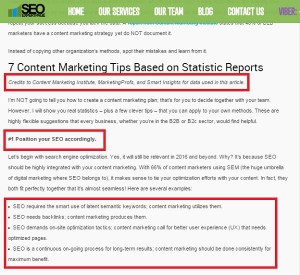
Keywords determine whether or not your ads show up in a search query, so there’s significant pressure to pick the right ones. And with so many keywords out there, it can easily become overwhelming.
Like writer’s block, keyword block is no fun. But fortunately, it can be overcome. Whenever you find yourself stumped for keyword inspiration, follow these handy tips.
Think Like Your Customer
Consider what your customers are searching for. It sounds so simple, but you would be surprised by how often this concept is overlooked. Try searching “as one of your customers” by:
- Going to your favorite search engine (we chose Google.com).
- Typing in your main keyword or base word.
- Writing down the recommended keywords that pop up in Google’s Instant Search.

Instantly, you’ll see what keyword variations are most popular with searchers. In this example, you see that “shoes for crews” and “shoes for women” are popular extensions of the keyword “shoes.” Use Google’s autocomplete function to discover what people are searching for, then adjust your keywords accordingly.
For the best results, perform your searches in incognito mode (Chrome). This way, your previous searches won’t taint your results. Also consider diversifying your search engines to gain a new perspective. Try using alternatives like Bing, Yahoo, DuckDuckGo, AOL, and About.com.
Study Your Competition
Don’t shy away from using your frenemies (a.k.a. competitors) to your advantage, too. Believe us when we say, they’re doing the same to you.
By studying your competition, you’ll gain a lot of valuable insight. Feel free to emulate the things that work well for them, and steer clear of what doesn’t perform. For example, you may want to:
- Add Your Competitor’s Keywords. If your competitor uses a keyword that you hadn’t thought of, and it seems to be performing well for them, go ahead and add it to your campaign. Test it out, it could work for you, too.
- Replace Your Keywords. Is your competitor using a better variation of one of your keywords? Replace some of your lower-performing keywords with new variations that seem to work well for the competition.
- Explore New Keywords. Is there a niche that your competitor isn’t targeting? Try using keywords that your competitors conveniently left out of their campaigns.
Explore Long-Tail Keywords
Branch out from broad keywords, and instead explore long-tail keywords. By adding two or three related modifiers to your keyword, you can play around with creating different phrases.
For instance, your broad keyword might be Lego. For a medium-tail keyword, you could use Lego Set. But you also want to consider long-tail keywords like Golden Girls Lego Set.
Added bonus: long-tail keywords are typically cheaper to bid on and have higher conversion rates. They tend to have less competition, and those searching for long-tail queries usually know exactly what they’re looking for.
Employ Keyword Tools
Save time (and your sanity) by using one of the many keyword research tools available. Here are a few of our go-to tools:
- Google Trends. With Google Trends, you can review a keyword’s performance history, see what’s popular, and delve deep on topics relevant to your business.
- Keyword Combination Tool. Get an aggregated list of all possible keyword combinations with the Keyword Combination Tool. Simply enter a list of keywords on one side, and a second list on the other.
- Bing Keyword Research. Review six month’s worth of organic keyword info by using this tool.
- SEMrush. Track search engine keywords with SEMrush to help optimize content on websites, copy, and PPC ads.
- WordStream’s Keyword Tool. Backed by Larry Kim (a PPC celebrity), WordStream’s tool targets niche groups, group keywords, and more.
When using your keyword research tools, focus on:
- Relevancy. Don’t target irrelevant keywords. Look for niche keywords and key phrases that relate to your company.
- Search Volume. Focus on keywords that have a least 1,000 searches.
- Competition. Target keywords that have low to medium competition. If your website is already ranking well with medium competition keywords, then it’s okay to go for high.
Conclusion
The next time you’re stumped for keywords, remember inspiration is right at your fingertips. Go online and research like you’re the consumer. Try out keyword research tools and have fun discovering and testing keywords. And don’t be afraid to gain insight from your competitors, too.
That keyword block will soon be history, and you’ll have a slew of high-performing keywords to choose from for your campaign.
Digital & Social Articles on Business 2 Community(134)









